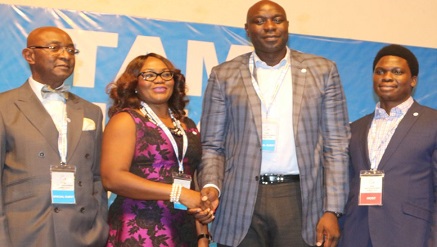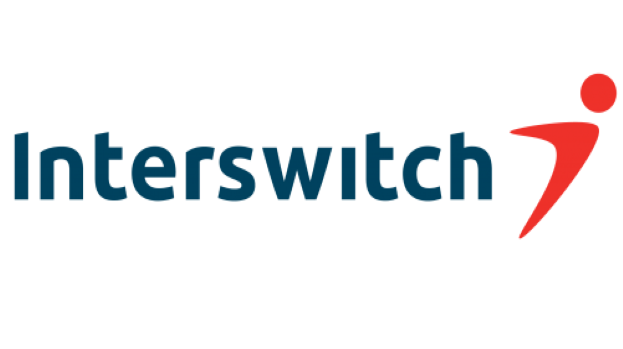E-Business
TAM Summit Highlights Technologies Potency in Time Management

Africans have been urged to embrace technological interventions as practical measures to overcoming poor time management.
Panelists at the inaugural TAM Summit unanimously agreed that technology can aid individuals and organisations in setting clear timelines for their set goals and objectives.
TAM Summit under the theme, “From ‘African Time’ to ‘On Time’: A paradigm Shift”, was conveyed by SB Telecoms in Lagos on Thursday, May 19, 2016 seeking for attitudinal change while drawing attention to the economic loss in Africa due to the “African Time” mental appendage.
Speaking at the Summit, Mr. Afolabi Abiodun, CEO of SB Telecoms & Devices and Conveners, disclosed that a survey conducted with the aid of TAM solution, found that almost 12% of annual labour cost is lost to lateness, tardiness, time theft and absenteeism.
He said, that in an economic climate, such is a huge lost as there was no successful venture devoid of time as a major contributory factor.
Abiodun said, “In 2005, the American government set a goal to reduce their dependency on foreign crude oil from 60% of their total need to 30% by 2015 and 0% by 2020. One of their key follow-through mechanisms is the perfecting of the fracking technology to access their Shale Oil. Today, America’s daily production has increased from 5.4 million barrels in 2005 per day to 9.3 million barrels per day as at the end of 2015.
“For the past three decades, various Nigerian governments have touted Vision 2020 to take us to the Promised Land of development. Four years to expected delivery date, we are yet to scratch the surface of this laudable target. Why? Although it is easy to blame lack of political will and socio-economic factors, but the real culprit, in my honest opinion, is a lack of interest in doing things in a timely manner and a readiness to give excuses, even though Nigeria is well known for drawing plans and issuing communiqués”.
He lamented that lack of time management has eaten deep into the fabric of the African society, and has turned the people to victims- of its manifestations in corruption, infrastructural decay, apathy, poverty, and so on.
“But it would be difficult to have any meaningful development if we hesitate to demand accountability, not only of resources and budgets but also of TIME- in the private sector and at all levels of government. Because, as we all know, no society can hope to make progress or catch up if there’s a culture of disregard for time.
To solve the challenge, he said that SB Telecoms developed a Time Attendance Management Systems (TAMS) service which from 2013 to the present has been deployed by over 1,000 organizations (including multinationals).
According to Abiodun, “Currently, TAMS has become much more than a time management solution. Based on customer research and feedback, we have developed other modules such as: payroll, appraisal, vacation and leave management.
In the course of promoting time management and the value proposition of TAMS, a few business owners and HR practitioners have protested that punctuality has nothing to do with performance. My response has always been that if we took the time to do some number crunching, we would appreciate the cost of time to us.
“To achieve more productivity, TAMS is getting better and better. TAMS is integrated with 20 Commercial Banks and 56 Microfinance Banks and all Pension Fund Administrators. I am happy to inform you that TAMS is one of 150 solutions worldwide invited to the Global Entrepreneurship Summit in Washington DC, to be hosted by President Barak Obama next month”.
Nodding in agreement, Mr. Adeola Adejokun, principal partner of Kishi-Lagos, said that he strongly believes that technology makes life more exciting and helps improve the lives of people across the globe.
He said that applications like Google Calendar, Smart Planner, smart wristwatches, are proven solutions Nigerians and African at large can leverage to undo the sickening ‘African Time’ syndrome.
Adejokun said, “I have realized that ‘African Time’ malaise as lack of consequence management enforcement which requires institutions that will monitor people in the work environment, whether in corporate or public sector.
“We can use technologies available today to tackle this head-on, because ‘time theft’ leads to erosion of values. Without rightly defined and times processes, it is usually difficult to have thr right culture in any place.
On her part, Mrs. Bukky George, who chaired the Summit, said that time like health is wealth and should be efficiently managed, hence poor time management is at the root of poor planning bedeviling the African society.
George who is also the founder/CEO of HealthPlus Limited, said, although ‘poor time management’ is a global phenomenon, Africans, especially youths must have attitudinal change to adapt to 21Century work environment, particularly, every sector of the economy revolves around such principles as time, predictability and efficiency.
She added that in spite the enormous infrastructural deficits in the country, proper time management can be maintained.
Mr. Oyeniyi Oguntoyinbo, MD/CEO of Philliy & Mools, said that every thriving multinational (companies) today started on the clear-cut principles of strategic and conscious timing of programmes.
According to him, a service company, for instance, must be built around timely response to customer’s inquiries or dissatisfaction.
“It is amazing when you list the consequences of poor time management. We often use the phrase, ‘Time is money’, but a lot of employees do not appreciate the fact that late responses to customer’s questions can lead to the demise of the entity. It is an attitude we must address as a people, business and country or Continent. Time is same everywhere, and we can’t change it, rather invest it wisely,” Oguntoyinbo added.
E-Business
AfDB, UNDP Launch $10Bn AI Initiative for Africa

The African Development Bank Group (AfDB) and the United Nations Development Programme (UNDP) have launched an ambitious $10 billion project to support the adoption of Artificial Intelligence (AI) across the continent.

The 10 Billion Initiative intends to accelerate ethical AI adoption and inclusive digital economic growth in Africa.
The initiative follows the Nairobi AI Forum, which took place earlier this month in Kenya and brought together governments, private sector leaders, development partners, and tech innovators to define pathways for impactful AI adoption.
According to the organisations, the strategy is a co-designed collaboration between the Bank Group, UNDP, and commercial partners that aims to raise up to $10 billion by 2035.
The resources will be used to create up to 40 million new jobs across the continent by 2035, through targeted investments that provide the groundwork for AI and accelerate widespread adoption in everything from entrepreneurship and regional data infrastructure to policy frameworks and skill development.
Nicholas Williams, AfDB Group ICT operations division manager, commented: “As a leading multilateral development institution, the bank is leveraging its comparative advantage to ensure Africa is not left behind in the AI era.
“The AI 10 Billion Initiative paves the way for expanded partnerships and sustained investments that will accelerate AI entrepreneurship, strengthen data and infrastructure ecosystems, and support inclusive growth across the continent.”
E-Business
Firm Identifies RenEngine Loader Distributed Through Pirated Games and Software

Kaspersky Threat Research has revealed its analysis of RenEngine, a malware loader that has recently gained public attention. Kaspersky identified RenEngine samples as early as March 2025, with its solutions already protecting users from the threat at that time.

Beyond the cracked games highlighted in recent reports, Kaspersky researchers discovered that attackers created dozens of websites distributing RenEngine through pirated software, including graphics editors like CorelDRAW. This expands the known attack surface beyond the gaming community to anyone seeking unlicensed software.
Kaspersky has recorded incidents in Russia, Brazil, Turkey, Spain and Germany, among other countries. The distribution pattern indicates opportunistic attacks rather than targeted operations.
When Kaspersky first identified RenEngine, the loader was delivering the Lumma stealer. Current attacks distribute ACR Stealer as the final payload, and Vidar stealer has also been observed in some infection chains.
The campaign exploits modified versions of games built on the Ren’Py visual novel engine. When users launch infected installers, a fake loading screen appears while malicious scripts execute in the background. The scripts include sandbox detection capabilities and decrypt a payload that initiates a multi-stage infection chain using HijackLoader, a modular malware delivery tool.
“This threat extends beyond pirated games — attackers are using the same technique to distribute malware through cracked productivity software, which broadens the potential victim pool significantly,” said Pavel Sinenko, lead malware analyst at Kaspersky Threat Research. “Game archive formats vary by engine and title. If an engine doesn’t check the integrity of its resources, attackers can embed malware that executes the moment you click play.”
Kaspersky solutions detect RenEngine as Trojan.Python.Agent.nb and HEUR:Trojan.Python.Agent.gen. HijackLoader is detected as Trojan.Win32.Penguish and Trojan.Win32.DllHijacker.
E-Business
Interswitch Partners Abia to Digitise Public Hospitals

Interswitch, a technology company, through its health-tech subsidiary, Interswitch eClat, has taken a major step in advancing Nigeria’s public-sector health digitisation agenda following the conclusion of a high-level stakeholders’ engagement with the Abia State Government.

The engagement took place ahead of the phased deployment of eClinic, Interswitch eClat’s Electronic Medical Records platform, across public health facilities in the state, the firm stated in a statement on Friday.
The engagement, convened by the Abia State Ministry of Health in collaboration with Interswitch and held at the State’s Ministry of Health in Umuahia, brought together senior government officials, health administrators, Interswitch representatives, and key ecosystem stakeholders to align on the scope, implementation framework, and expected outcomes of the proposed eClinic deployment.
The initiative reflects a shared commitment to leveraging digital infrastructure to improve healthcare delivery, operational efficiency, and patient outcomes across Abia State’s public health system.
Discussions focused on deploying Interswitch’s eClinic solution in alignment with Abia State’s broader healthcare reform agenda under the current administration, particularly the transition from fragmented, paper-based systems to secure, interoperable digital platforms across public health facilities.
The proposed kick-off phase will span six public health facilities, including three primary healthcare centres, two secondary facilities, and one tertiary hospital, creating an end-to-end digital care pathway that strengthens patient referrals, supports continuity of care, and enables data-driven decision-making across all levels of service delivery.
The EMR solution is built to reduce patient waiting times, strengthen referral processes, and ensure the secure handling of both clinical and administrative data, supported by a hybrid infrastructure that enables local hosting with cloud-based backup.
Speaking at the engagement, Prof Enoch Uche, the Commissioner for Health, Abia State, described the initiative as a major milestone in the state’s healthcare transformation journey and highlighted the importance of private-sector collaboration in achieving sustainable impact.
“The Ministry of Health in Abia State is excited about the digitisation of health facilities, starting with Interswitch’s eClinic pilot phase involving three primary, two secondary, and one tertiary health centre. This initiative will enhance efficiency, accountability, and patient care by linking records across different levels of care.
“Global evidence shows that digital health improves access, reduces the cost of care, and maximises human resources while personalising services for our people. This partnership with Interswitch represents a key deliverable for this administration and aligns with the Governor’s vision for a modern, technology-driven health system,” he said.
During technical sessions led by Babatunde Fadeyi, Vice President, Health Ecosystem (Public Sector), Interswitch, stakeholders were taken through the core capabilities of Interswitch’s eClinic platform.
These include secure patient record management, ICD-11–compliant diagnosis coding, controlled data update protocols, and integrated billing and reporting tools designed to improve efficiency and accountability across health facilities.
Stakeholders were also briefed on the platform’s governance framework, risk mitigation approach, and phased implementation roadmap. Commenting on the engagement, Fadeyi reaffirmed Interswitch’s commitment to delivering measurable impact through technology-enabled healthcare systems.
“Abia State has demonstrated a strong commitment to innovation and system reform. The alignment of the state’s healthcare priorities with national health digitisation objectives creates a solid foundation for meaningful progress. Interswitch’s eClinic platform is designed to improve hospital operations by automating workflows, securing patient data, and providing healthcare managers with reliable insights to guide decisions.
“Beyond improving patient experience, it supports stronger revenue tracking, operational efficiency, and accountability. Our focus is to ensure the success of this pilot phase and deliver tangible improvements across productivity, service delivery, and patient satisfaction,” he said.
Also speaking at the engagement, Dr Ifeyinwa Blossom Uma-Kalu, the Permanent Secretary of the Ministry of Health, Abia State, highlighted the operational and clinical value of Interswitch’s eClinic initiative, particularly in strengthening referrals, improving revenue management, and expanding access to specialist care.
“This digitisation initiative will help us track our finances and internally generated revenue more accurately while reducing leakages. More importantly, it strengthens our referral system by allowing patient records to move seamlessly from primary to secondary and tertiary care.
“With a digital framework, healthcare workers in remote communities can access specialist support through telemedicine, helping to save lives and improve outcomes. This is a critical tool in our efforts to reduce maternal and infant mortality, and we are eager to see the outcomes of Interswitch’s eClinic,” she noted.
The engagement also addressed key success factors for the project, including power stability, user training, change management, and inter-agency collaboration, with both parties emphasising sustainability and scalability as the project progresses.

 General News3 days ago
General News3 days agoZinox Technologies and TD Africa Forge Strategic Partnership to Revolutionize African Tech Ecosystem

 Telecom3 days ago
Telecom3 days agoUwaje Pays Tribute to Leo Stan Ekeh @70

 Telecom2 days ago
Telecom2 days agoCyber Immunity Emerges as Shield for Nigerians Amid Rising Scams

 E-Financial2 days ago
E-Financial2 days ago$214Bn Missing, Institutions Silent: Is Accountability Dead in Nigeria?

 General News2 days ago
General News2 days agoNITDA, Abia Partner on Enterprise Architecture Reform

 E-Business2 days ago
E-Business2 days agoInterswitch Partners Abia to Digitise Public Hospitals

 E-Business2 days ago
E-Business2 days agoWIEG 2026 Summit Shifts to April 22-23 for Maximum Impact

 News1 day ago
News1 day agoNITDA Urges Stronger State Partnerships as Key to Digital Economy Goals @ South-South Stakeholders Forum














